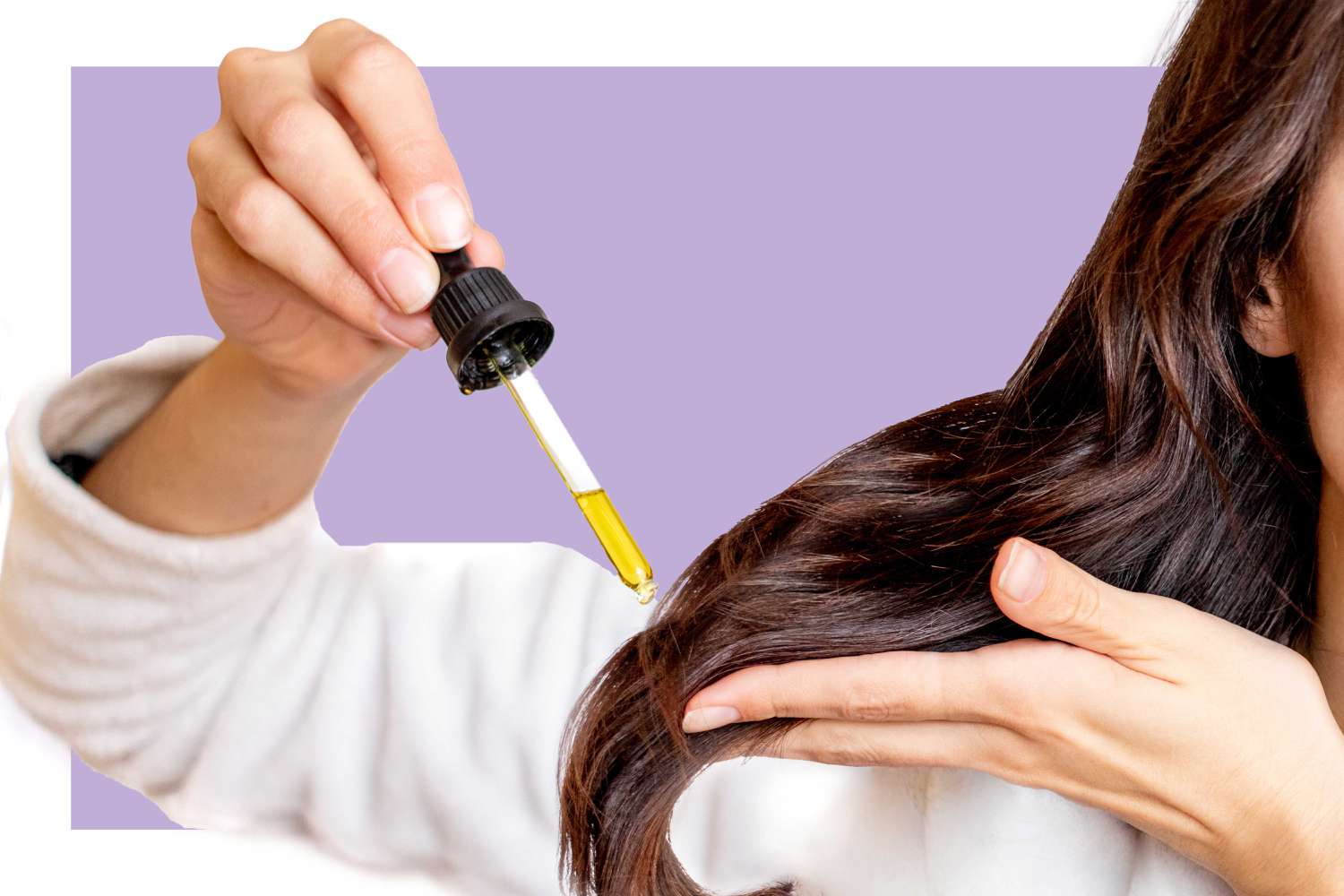Experts Discuss the Benefits of Argan Oil for Hair

Hair growth is a hot topic for many people — whether you’re experiencing hair thinning, hair loss, or just looking to achieve your healthiest locks. As such, you’re probably wondering what options are out there to help you with your hair goals, and you’ve likely come across argan oil at some point in your hair care journey.
Argan oil is often referred to as “liquid gold” thanks to its amazing properties for skin and hair care, and it is sometimes touted as a great option for hair growth. Unfortunately, while it boasts a range of benefits for hair health, there isn’t enough evidence to say whether it can promote hair growth, as noted by trichologist Jane Mayhead from The Private Clinic in London. “However, hair oil as a product is a safe and effective option for the treatment of women suffering from hair breakage and damaged hair,” the expert adds.
According to the hair pros we spoke to, argan oil is absolutely worth adding to your hair care arsenal and can help you improve your hair health overall when used consistently. Below, we answer all your pressing questions about this miracle oil.
First things first, you’re probably wondering what exactly argan oil is. “Argan oil is extracted from the kernels of the argan tree, which is native to Morocco,” explains Dr. Alan Bauman, a board-certified hair restoration physician and hair transplant surgeon at the Bauman Medical Hair Transplant & Hair Loss Treatment Center. “It is rich in essential fatty acids, antioxidants, and vitamin E, making it a popular ingredient in hair and skin care.”
Gretchen Friese, a trichologist for BosleyMD, adds that argan oil is beloved for hair and scalp care because it helps “reduce damage to the hair and stimulate hair growth.” She also notes that argan oil can be used for cooking (though you’ll want to pick a specific culinary version rather than one designed for hair care).
Argan oil alone may not technically promote hair growth, but it does help with hair health, which in turn helps create the right conditions for hair to grow better. “Argan oil contains compounds called ‘phenols,’ which stimulate the scalp and strengthen hair follicles to provide a healthy environment for hair growth,” says Friese.
Meanwhile, argan oil boasts some other great benefits for your hair. Dr. Bauman explains that the vitamin E “acts as an antioxidant, reducing oxidative stress and damage to the hair follicles.” At the same time, the fatty acids nourish, hydrate, and protect the hair from breakage, and the phenols and carotenes help strengthen the hair and make it less brittle.
According to Dr. Bauman, argan oil also “helps to smooth and tame frizzy hair, provides a natural shine to dull hair, moisturizes the hair shaft, reducing the occurrence of split ends, [and] acts as a natural heat protectant when styling hair.” So, it’s safe to say this miracle oil has a pretty solid track record for helping people achieve beautiful hair.
If you’re interested in trying argan oil for your hair, here’s what you need to know before you start.
Before you start, there are a few precautions to use argan oil safely.
There are multiple ways to use argan oil. Here are a few expert-recommended application methods:
If you plan to use argan oil on damp hair post-wash, Dr. Bauman and Friese agree that two to three times a week is the ideal schedule, at least to start with. “Then adjust the usage based on how well your hair and scalp skin tolerate it,” says Friese. “Fine hair and more oily hair types may want to use it a bit less, while damaged or dry/frizzy hair may want to use it more often.”
As with any part of your beauty regimen, consistency is key if you’re serious about the desired results. “With consistent use, you might start noticing improvements in hair texture and shine within a few weeks, but significant growth changes can take several months,” says Dr. Bauman.
Meanwhile, Mayhead notes that if you’re using argan oil as a deep conditioning treatment, it’s best to use it once weekly or every two weeks “along the whole strands of the hair, to improve luster, cuticle health, and protein loss.”
In conclusion, “while argan oil can support hair health, it’s essential to consult with a board-certified hair restoration physician for comprehensive diagnosis and treatment of hair loss,” says Dr. Bauman. “Natural remedies are beneficial but not substitutes for professional medical advice and treatment.” With that in mind, argan oil can make a wonderful addition to your hair care regime, promoting shine and moisture and helping to reduce frizz and breakage. If you’re specifically looking for hair growth properties, try mixing your argan oil with rosemary oil, which shows great potential for countering hair loss.




